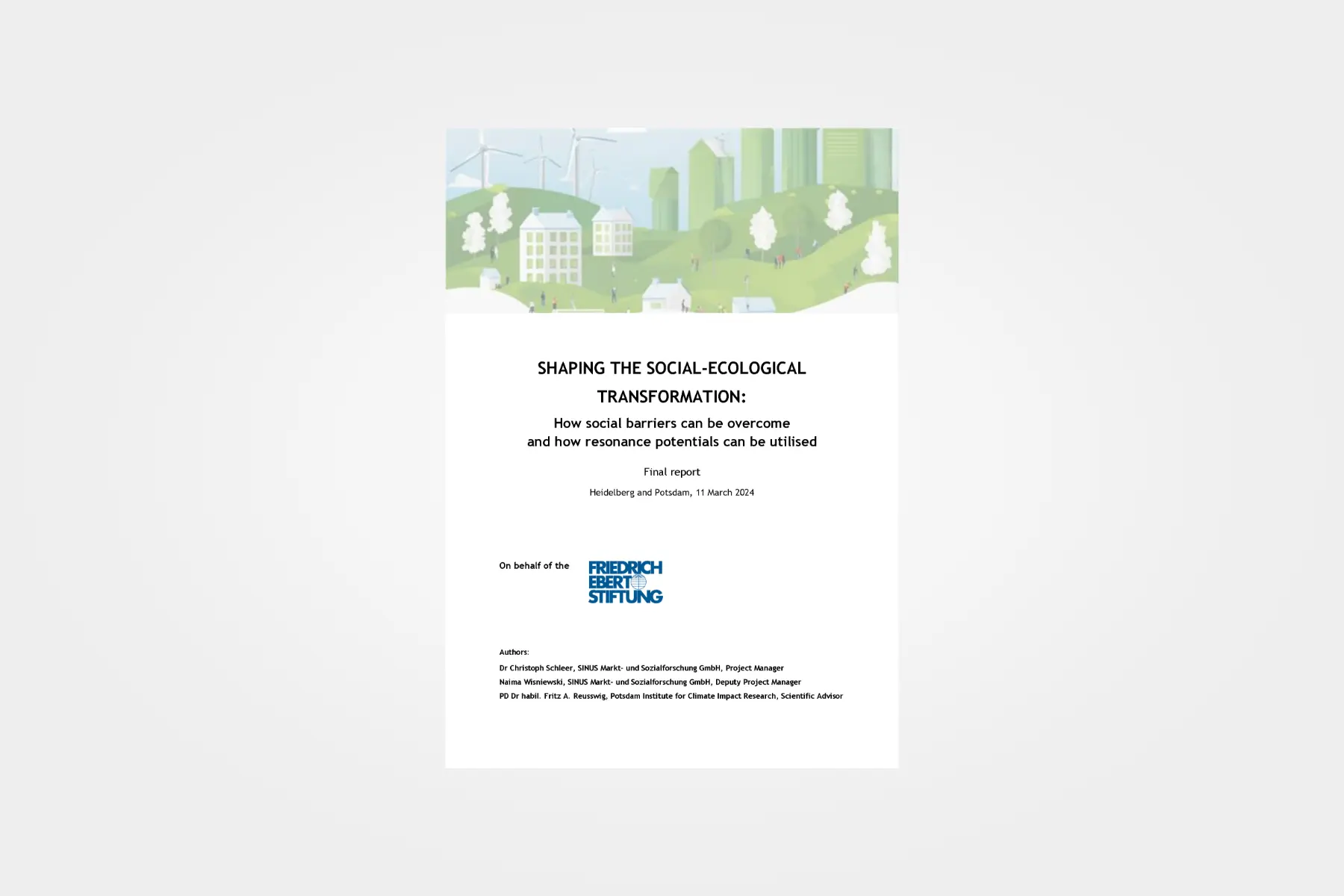Shaping the social-ecological transformation

How to overcome social barriers and utilise resonance potentials
On behalf of the Friedrich-Ebert-Stiftung, SINUS-Institut asked over 22,000 citizens in 19 countries (in Europe and North America) about their perceptions, interests and fears associated with the socio-ecological transformation.
The results of the representative surveys clearly show that there is now widespread awareness of the need for a fundamental rethink in politics, business and society. For example, more than two thirds of respondents in all countries surveyed believe that a fundamental change in economic and lifestyle practices is necessary in order to tackle climate change.
However, the study results also show that the "approach" of socio-ecological change leads to various feelings, reservations and counter-reactions - from a general unease about change processes to fears of increasing ecologically motivated regulations, economic damage and high personal costs to doubts about the feasibility of the transformation, accusations of social disadvantage and growing fears of the future and social decline among the population.
For a more detailed analysis, the international target group and social model of the Sinus-Meta-Milieus was integrated into the country surveys. The socio-cultural differentiation made it possible to work out which social milieus are (particularly) receptive to climate policy measures and which population groups are critical, reluctant or hostile to socio-ecological change.
The findings were used to analyse how social barriers can be overcome and how resonance potential (preferences, values, activities, etc.) can be used to convince the largest possible number of people in the transition to sustainable ways of living and doing business, to keep social conflicts to a minimum and to strengthen democracies rather than destabilize them.
Recommendations for governance and public policy are formulated in the final project report.
